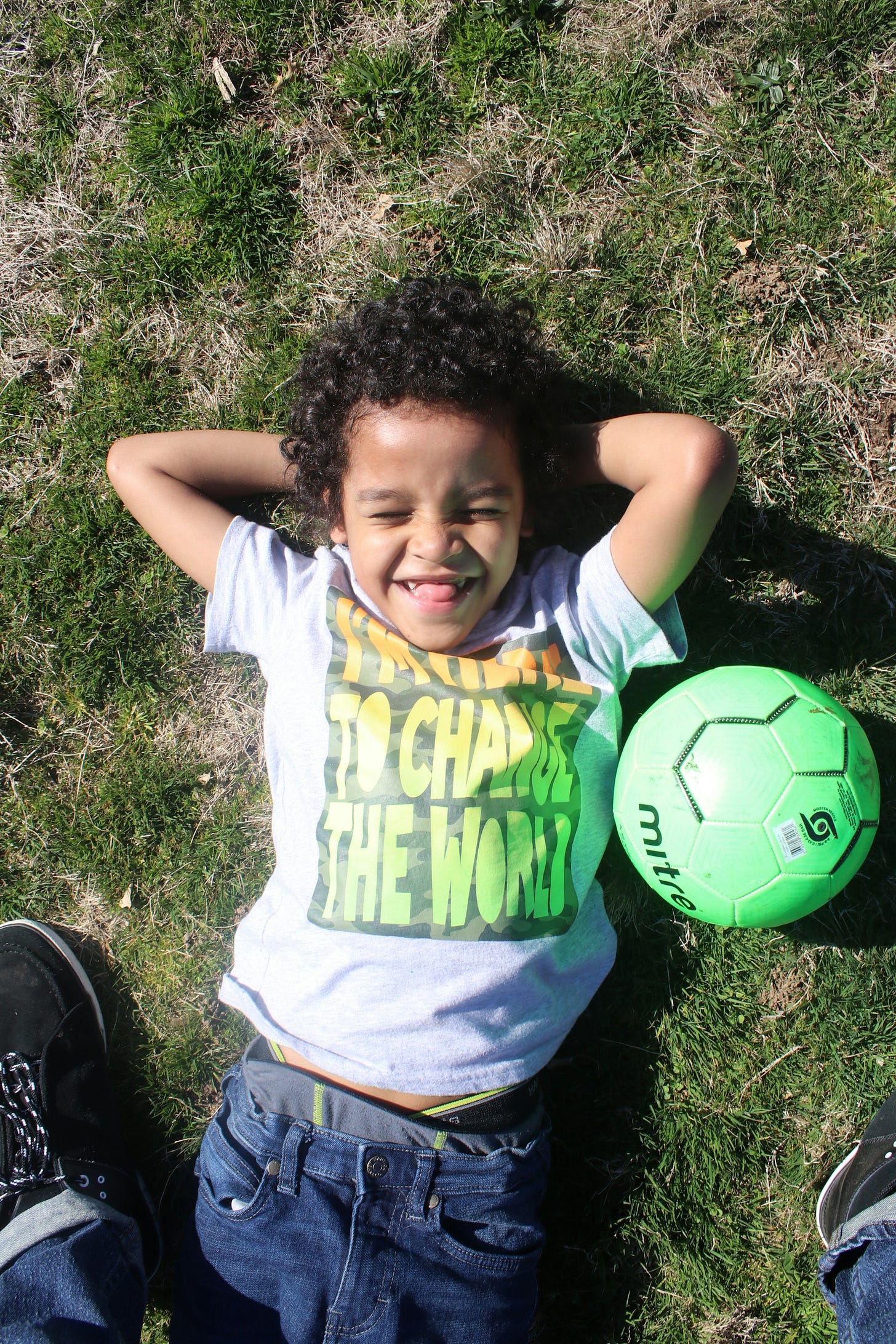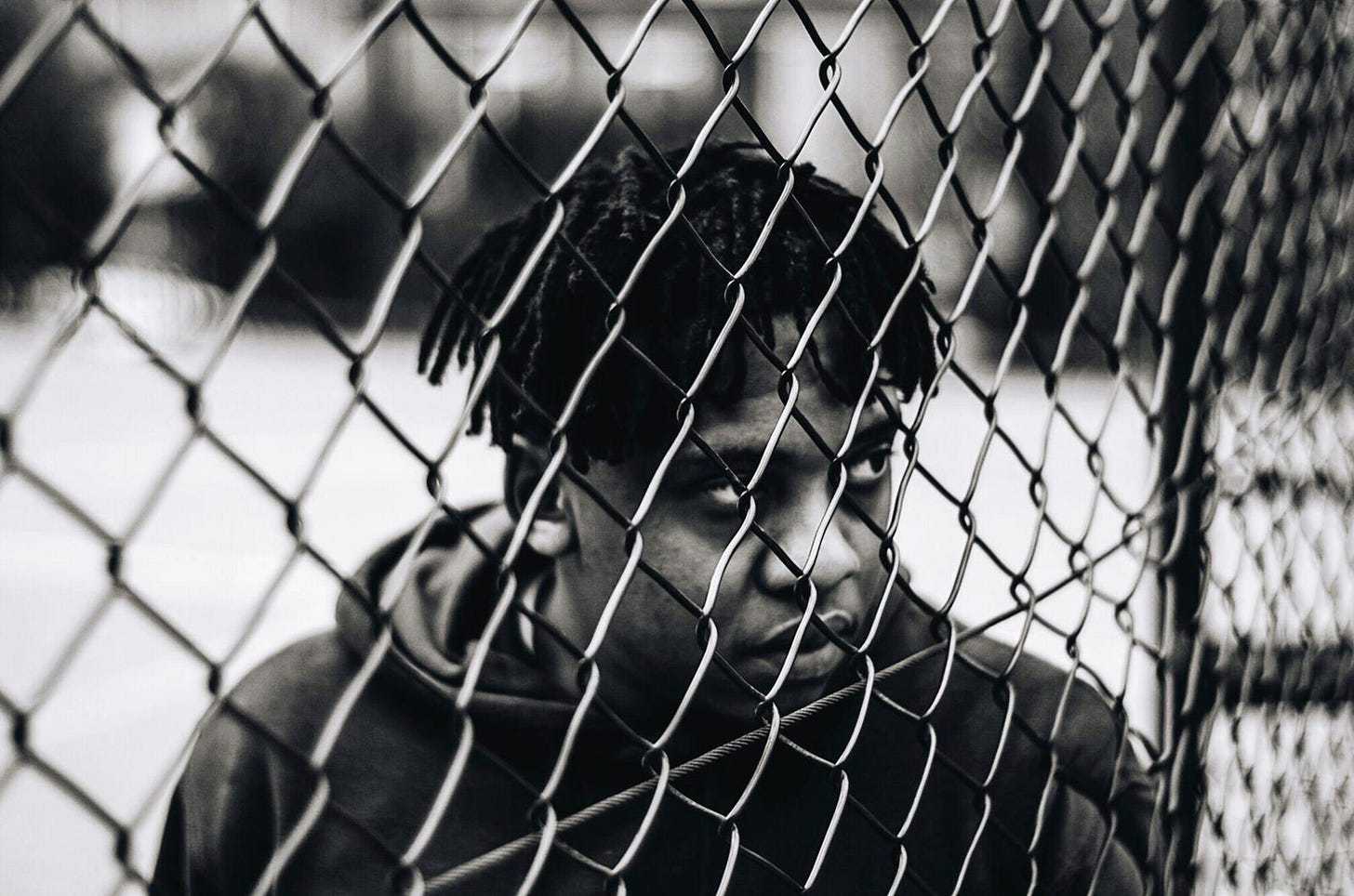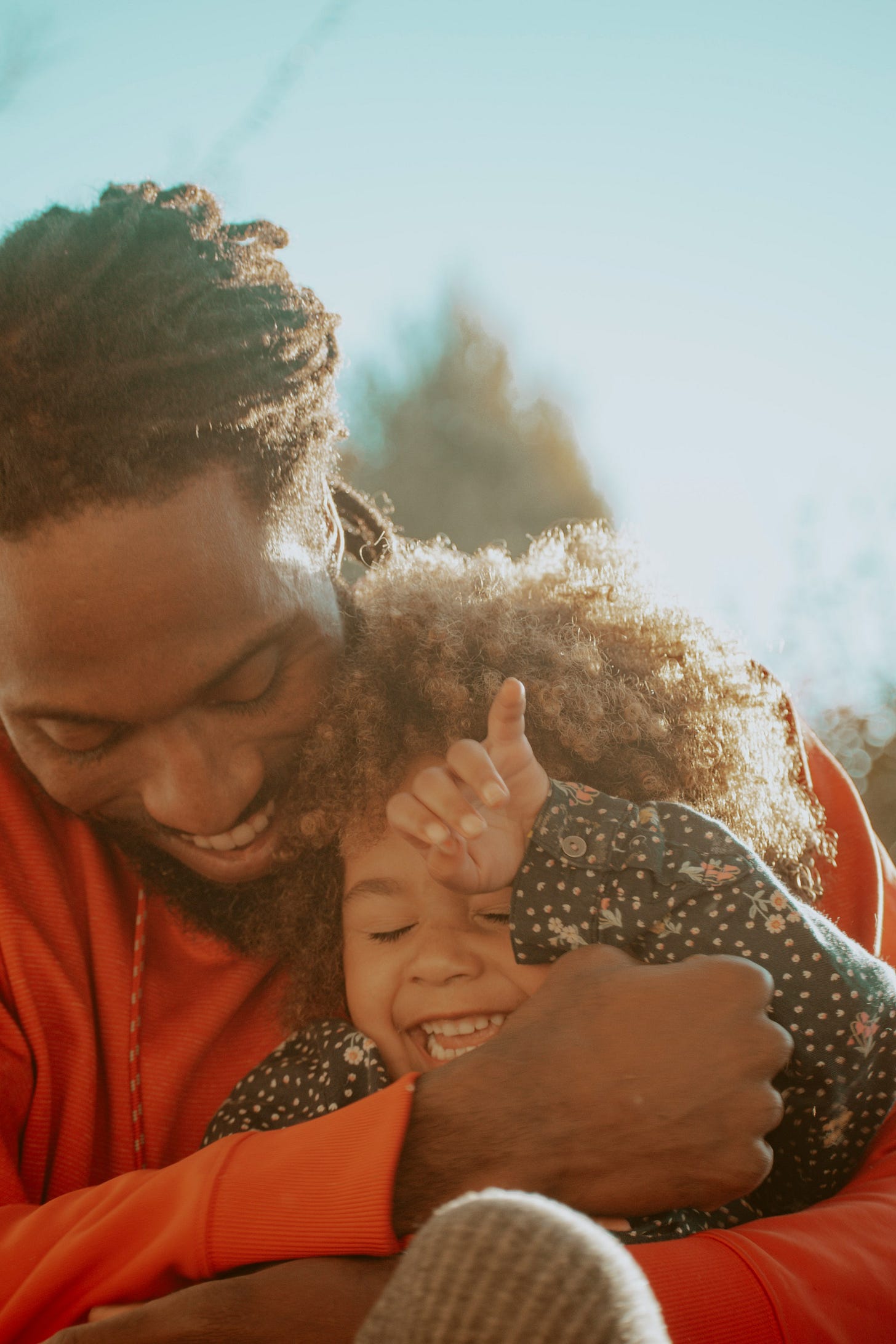
Everything seemed possible, when I looked through they eyes of a child.
And every once in a while; I remember,
I still have the chance to be that wild—Nikki Rowe
I was about to do my laundry and noticed a huge stain on my work coat. It didn't take long to remember how the stain came about.
It all started during one of the dull days at work, I was staring outside the muster point of the mall, watching people go about their various businesses. A boy, around age 3 or 4 , came running towards the store where I work, with a huge smile on his face. He was enjoying a playful chase from someone—who, I later discovered, was his mother.
For the boy, the chase was fun. But for his mother, it was a different story. She had probably run the equivalent of a marathon chasing him around the mall. She was clearly losing the battle trying to catch him. She was calling his name repeatedly, trying to stop his shenanigans, before he caused any trouble.
However, to him, it seemed like she was cheering him on to keep running.
As he got closer, I watched from a distance trying to understand why he was running into a pharmacy. Before I could gather my thoughts, he was already close, and I felt two tiny hands wrap around my legs with joy.
In a moment of instinct, I grabbed him, lifted him as high as I could, and threw him in the air a few times, watching him beam with a smile each time. When I exhausted my energy, I set him down and gestured for him to go to his mother, who had apologized massively for what she assumed was an inconvenience.
However, the little boy wasn’t done yet.
He spread his arms wide for me to carry him again. His mother, now uncomfortable with the disturbance, wanted to take him away forcefully. I told her to wait. I promised we could do it two more times, and then he would go. I made it clear to the little boy, and while he seemed to understand, his enthusiasm said otherwise—his energy and the playful fire in his eyes suggested that just two more rounds wouldn't be enough.
I took him again, lifting him once more. He let out an animated laugh that surprisingly synced with mine. I didn't expect to enjoy this so much, but his infectious energy got to me before I realized it. I threw him up five more times. After the fifth throw, he sneezed on my face, seemingly deciding the fun was over for him.
His mother, who had been an eager spectator the whole time, gave up trying to interrupt our fun. I was quite sure that watching her son have fun with a stranger wasn't part of her plan for the day. Sometimes, that's just what happens with a little boy overflowing with energy – it spills over, infecting you even as an adult.
Finally, it was time to go.
The fun was over. I gestured to him, "Okay! Bye! Go to Mummy." But then we had another problem. He didn't want to go. He gripped my leg, signaling to his mother that he wasn't ready to leave. She wasn't having any of it and called his name, "Henry! Oya! Let's go!"
Henry wasn't having any of it either.
He had made his decision, and it was final. I was caught in the middle, feeling a connection to the boy. I wanted him to stay, but I needed to work and put his mother out of her minor distress. She saw that I wanted her son to stay, which meant she had to stay and watch over him.
Seeing her son having so much fun with a stranger wasn't part of the day’s plan, but she seemed hesitant to take him away immediately. I suggested she leave him with me for a while, figuring a playful kid like Henry would eventually get bored and find something else to entertain him. She agreed, perhaps hoping the same, and decided to wait nearby.
As expected, after a few hours, Henry's energy waned. He snuggled up on my shoulder, his tiny hands wrapped tightly around my neck, and drifted off to sleep. Finally, it seemed like playtime was over for him and also his shopping trip with his mom.
He finally ran out of energy. Who would've thought?
It was also the end of the shopping experience for him and his mother. I carried him to the parking lot as he slept gently on my shoulder. We located where she parked, and I laid him gently in the back of the car.
He opened his tiny, sleepy eyes a little, but not enough to recognize me. He was too tired probably. I couldn't say a proper goodbye to little Henry. Like any child, he had found another place to rest.
For the brief seconds I watched him close his eyes again, I wondered what dreams filled his little head. Could it be our recent shenanigans in the store? I wondered if I made an appearance.
Maybe I did, maybe I didn’t. However, little Henry reconnected me back to the playful and carefree spirit of childhood.
As I raced back to work, I looked down at my massively stained work coat. Henry didn't just leave his mark on my memory; he'd left a physical reminder on me too – a colorful souvenir that stood for days—till the laundry day.

My encounter with 4-year-old Henry reminded me of the overall innocence of childhood. Only a few adults, if any, would run up and hug a stranger, while demanding to be thrown up in the air.
Reflecting on this, I realized that little Henry didn't understand how the world works. He didn't understand its codes, ethics, and tenets. Everything was possible for him. Every door was open, and every activity was fun and play. He was the main actor in his little movie called life. He didn't bat an eye about what anyone thought. He just wanted, and he just did.
I kept imagining Henry as an adult, much like me.
When little Henry gets older, his imagination could wane. His infectious excitement could fade. He would have to worry about things and people.
Much of his fantasies will turn to reality because he will see things for what they are. People for what they represent. He will open himself to a world that is much harder to understand—a world full of questions that mere childish curiosity can't navigate. A world much harder to understand, impossible to navigate, with fewer chances to sleep on a stranger's shoulder.
Henry could discover that he is not special.
He is not unique. He's just the star of his own movie. He plays. He watches. Even when others are watching, they watch to judge, to pick out his flaws.
Nobody will carry him to a car in the parking lot. He’s heavy. An unnecessary burden to most. His tiny, sleepy eyes need to be wide open to sense danger and betrayal.
His sleep would get shorter when the nightmares of daily life springs him up for attention.
Henry could encounter various possibilities. He might want a dream job or career, but it won't work out. He will experience heartbreak after falling in love once. He will discover that relationships aren't as magical as he thinks, and people aren't as welcoming as he once thought.
Henry would lack purpose at some point. Much of his life would be about people setting objectives for him—exams, homework, elementary school, high school, university, and degrees. He would wake up one day with the responsibility of finding his own meaning.
He would get confused and hate himself.
Henry will also be responsible for his destructive behaviors. There would be no one waiting for him to see his fun through. There would be no time. He could be stuck in an awful job, relationship, or friendship—he could be hesitant to leave. It would seem difficult because the idea of leaving would seem daunting, even costly. Now, Henry has to hold on to the safety pin of these commitment grenades, these hard edges, or they could detonate and blow up his life.
He could cry to the universe and ask why he’s being treated that way, but the universe won't care. It isn’t cruel or kind, it's just supremely indifferent. All the plans he make, all the fears he have, all the dreams he hold, they will mean nothing to the universe who could cast them aside in a millisecond with no warning and no recovery possible.
A lot awaits little Henry, but it’s not all there is.
Henry could also be ignorant of the rigors of adulthood. He could be lucky. He could be protected. He could see the brighter parts of life without being keenly aware of the darker side of it.
If he’s not. If he gets unlucky, Henry would go through all these trying to find a respite.
What can he do?
He could try to connect with his inner child—the little boy who was being chased around the mall, the boy who sneezed in the face of a stranger and lets out a cute laugh. The boy is inside him, knocking. To Henry, he seem to have no place in his current reality. He no longer fits in.
Yet, he does.

He does—and Henry needs a chance to reconnect with him. He has sailed through enough stormy seas. He could become his anchor—the safe harbor he has longed for. He can talk to his little self, share the stories of his grown-up life—the battles fought, the heartbreaks endured, and the dreams deferred.
However, possibly, little Henry might not grasp it all. He might not understand. After all, he's a child, living in a world of boundless possibilities. The struggles of adulthood could seem strange to him. But he’ll listen. He’ll pay attention to his older self. This would be the first sign of reconnection from Henry—the sign of a chasm being closed.
He'll open himself up, look into little Henry's eyes and say, "Listen, one day you will be grown. There will be tough times, moments of doubt and pain. People will let you down, your dreams will fade. But one thing will always remain true: you'll never lose yourself. And I, I'll always be there, a hand for you to hold, a voice to remind you of who you are."
Little Henry, though unable to fully comprehend the weight of his words, will offer a small gift in return. A gentle reminder, trapped in a bubble of childhood innocence: He will tell him—even amidst life's uncertainties, there's always a room for roaring laughter, for the pure joy of running, doing the things you love—just because you can. You have a personal permission to hold tight to the things that bring you joy, to soak up the simple pleasures of life— without fear of letting go.
Henry will pull his little self closer, with a promise whispered against his hair. He'll promise to be his home, a safe place to run to, no matter what life throws his way. Together, they'll run, laugh, smile, chase after sunrise, cling to hope, face down every difficulty, and go through the uncertainties of life, hand in hand.
With this promising connection, Henry could finally rediscover himself. He'll always have that little boy to run back to, an umbrella under the rain. He will face life knowing there’s an exciting possibility existing within him. He can move with a newfound courage, the knowledge that whatever happens, he'll find his way back to himself, and eventually, he’ll be okay.



